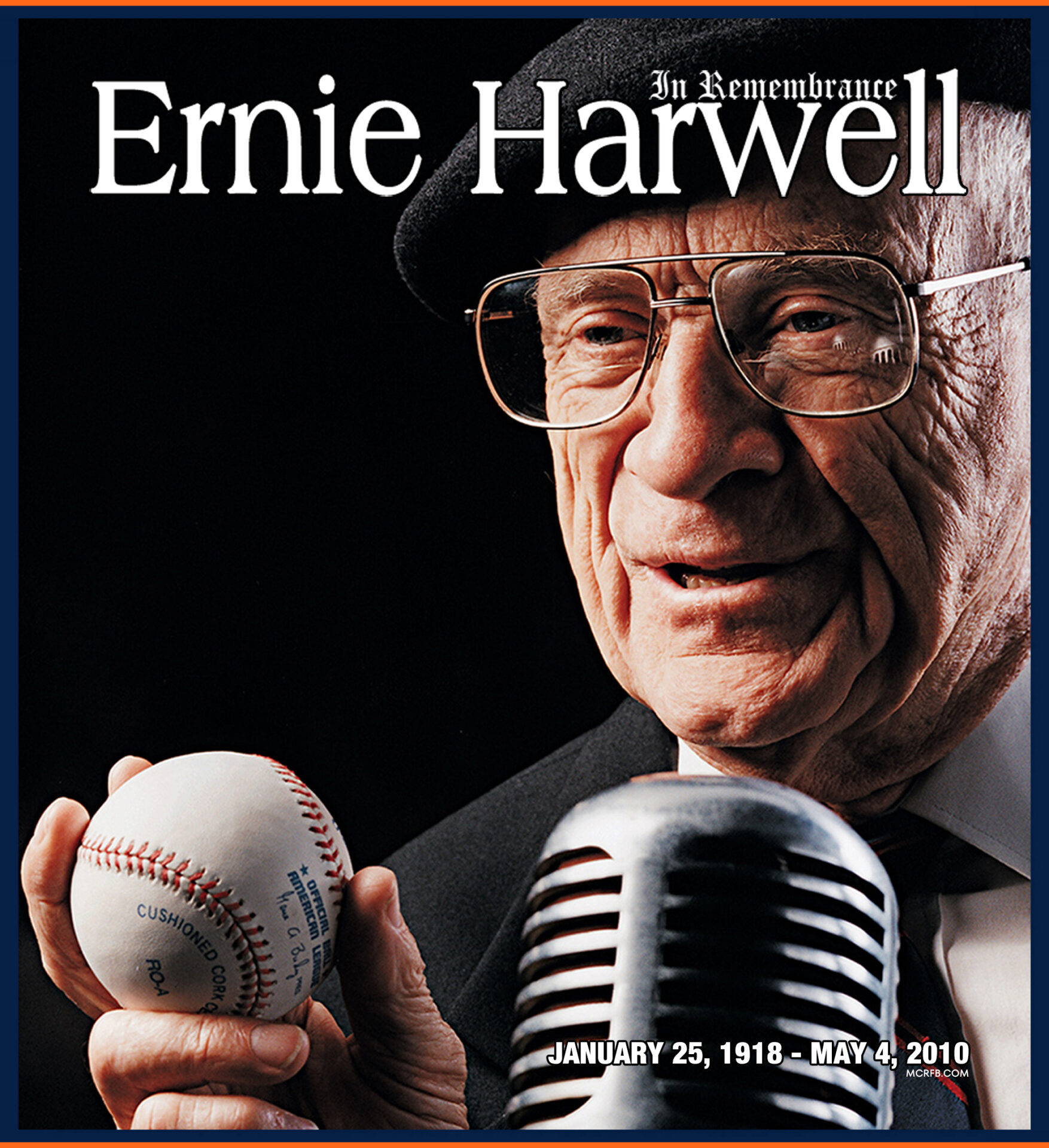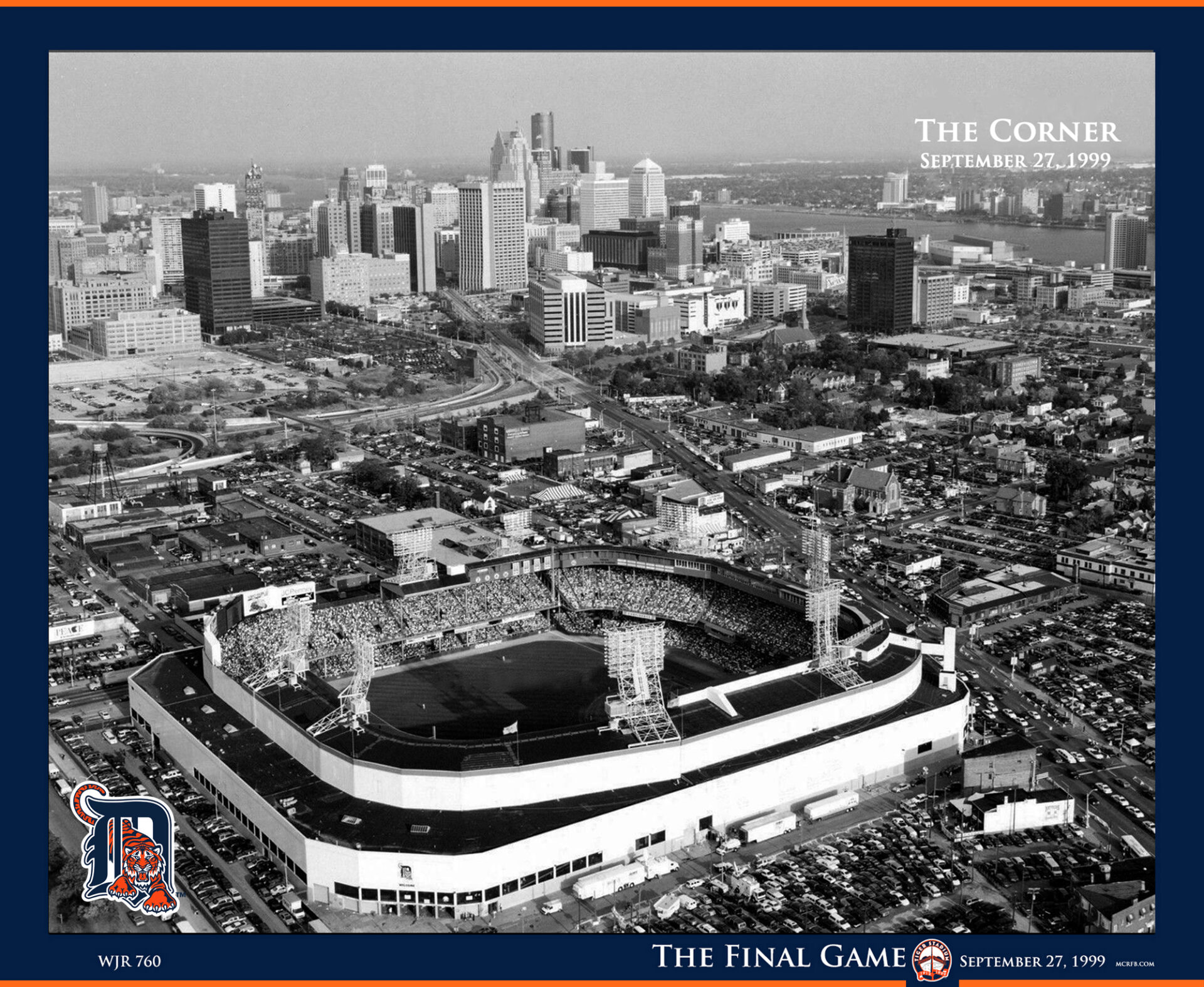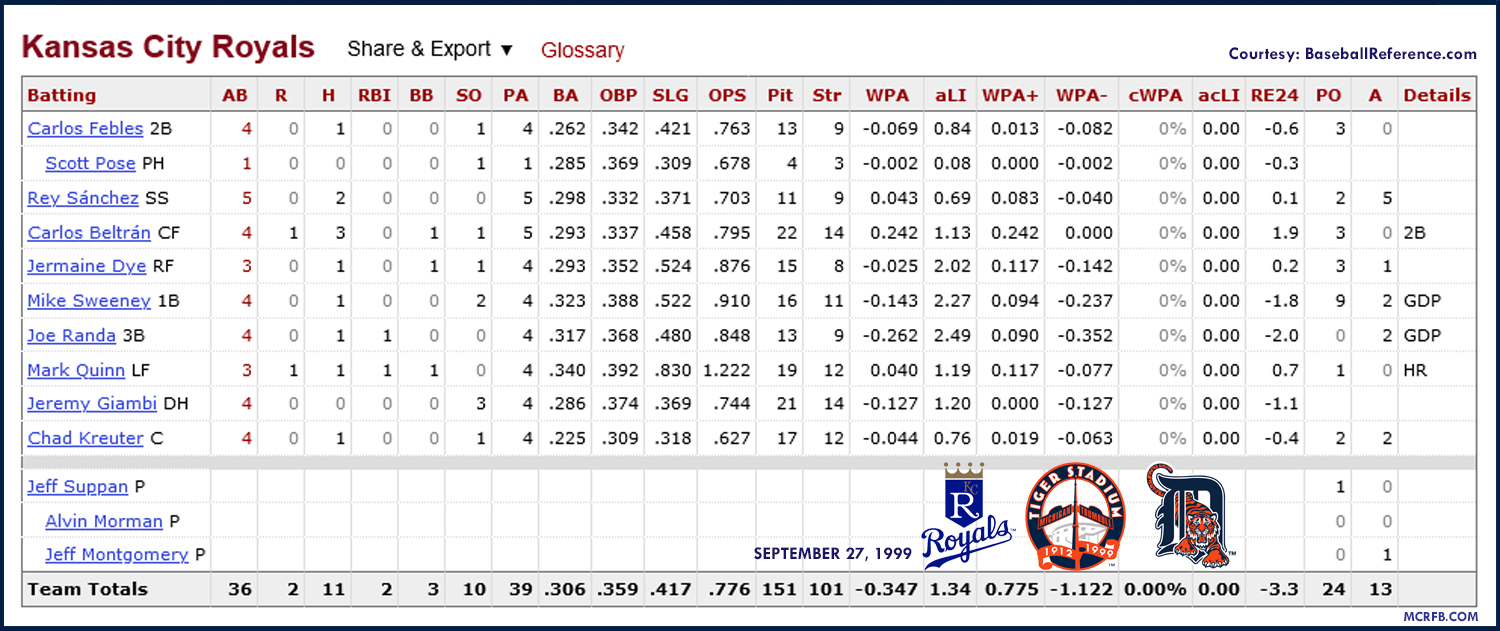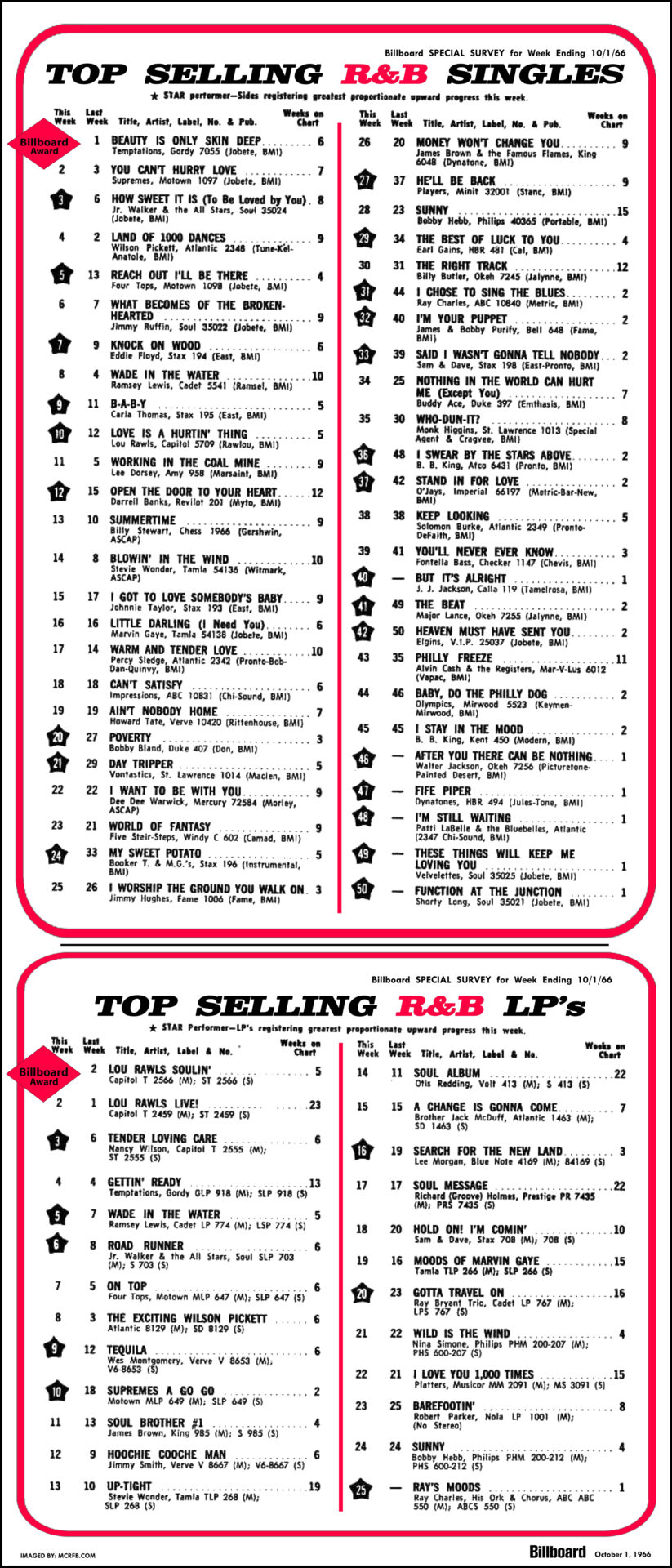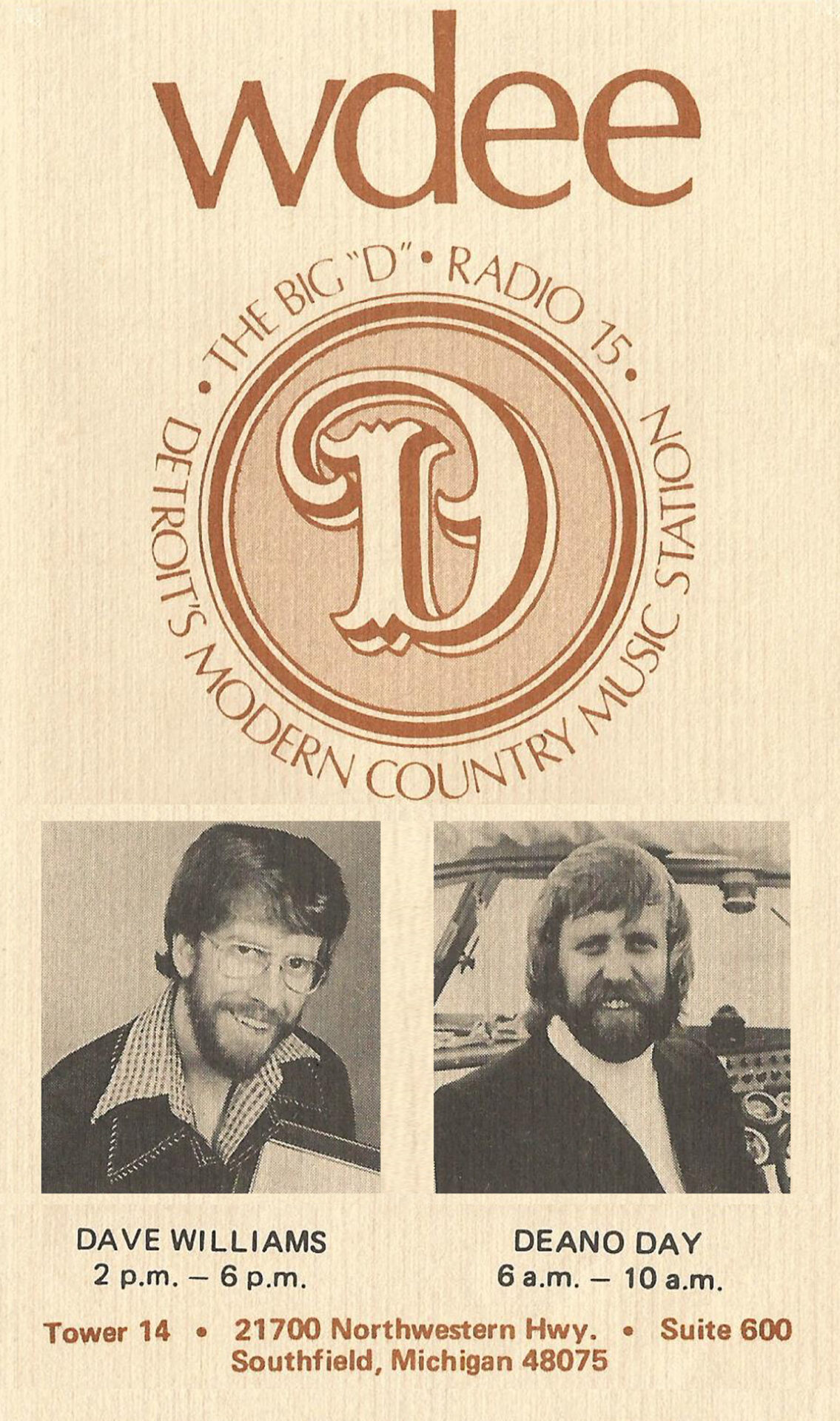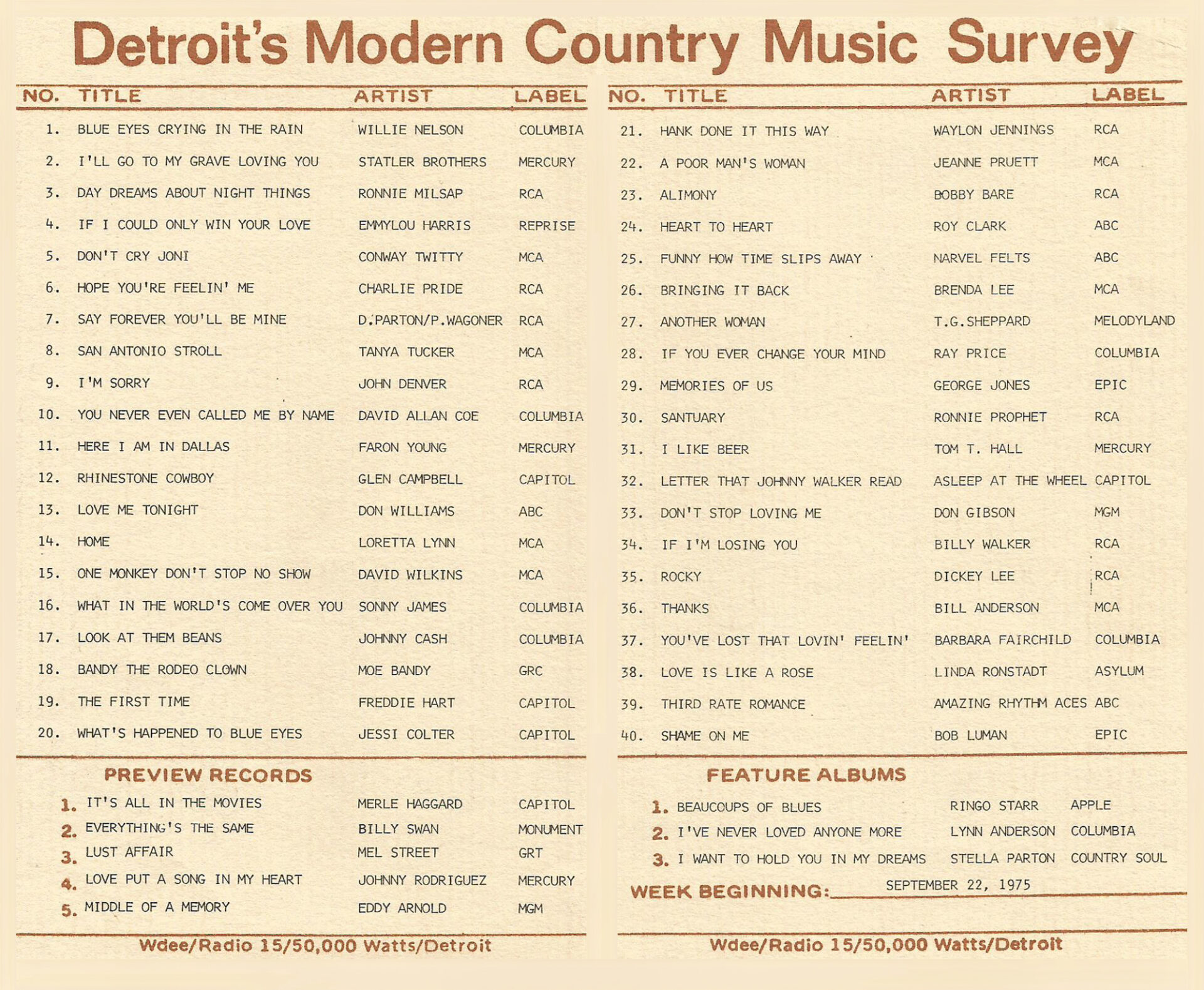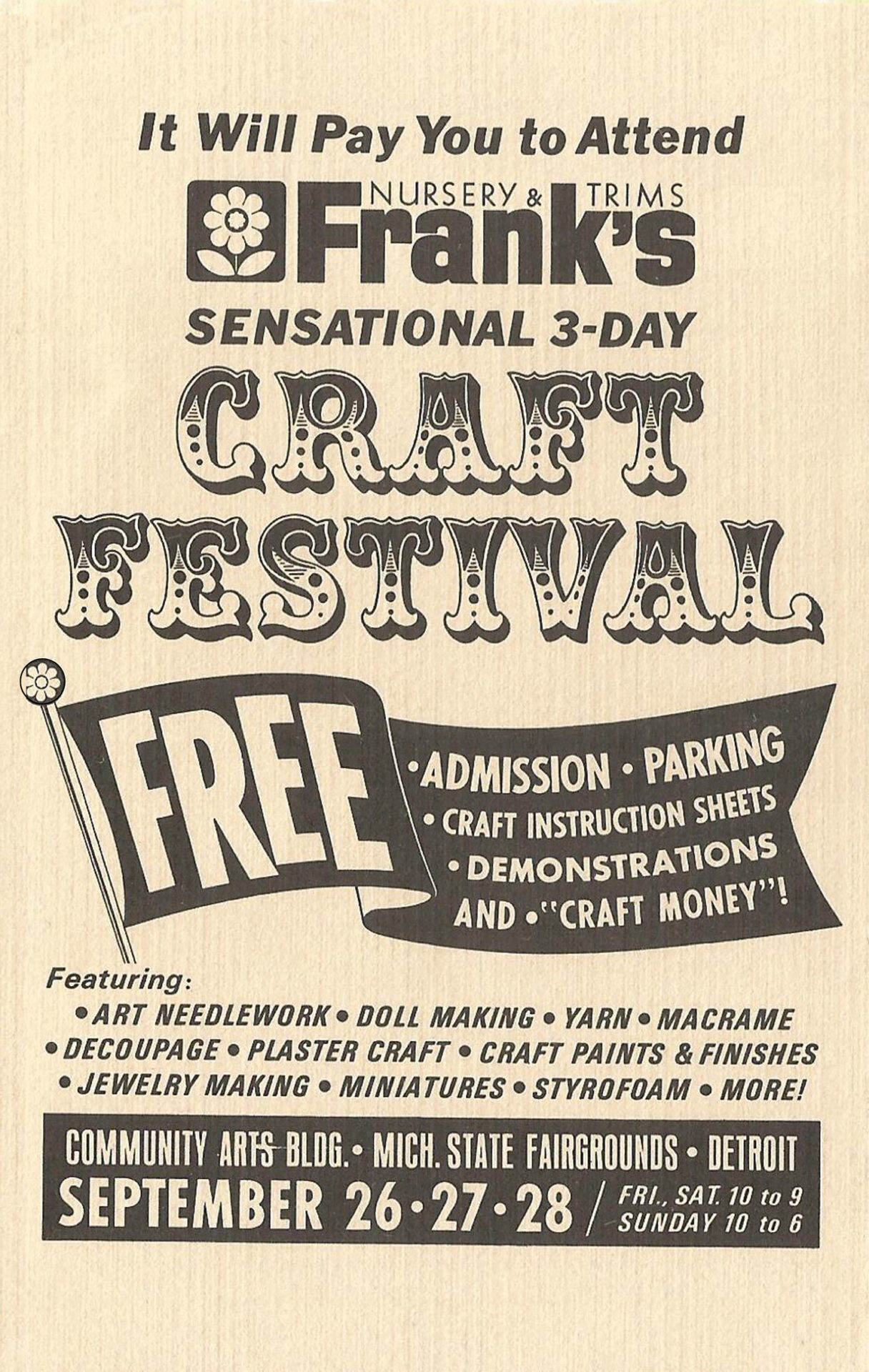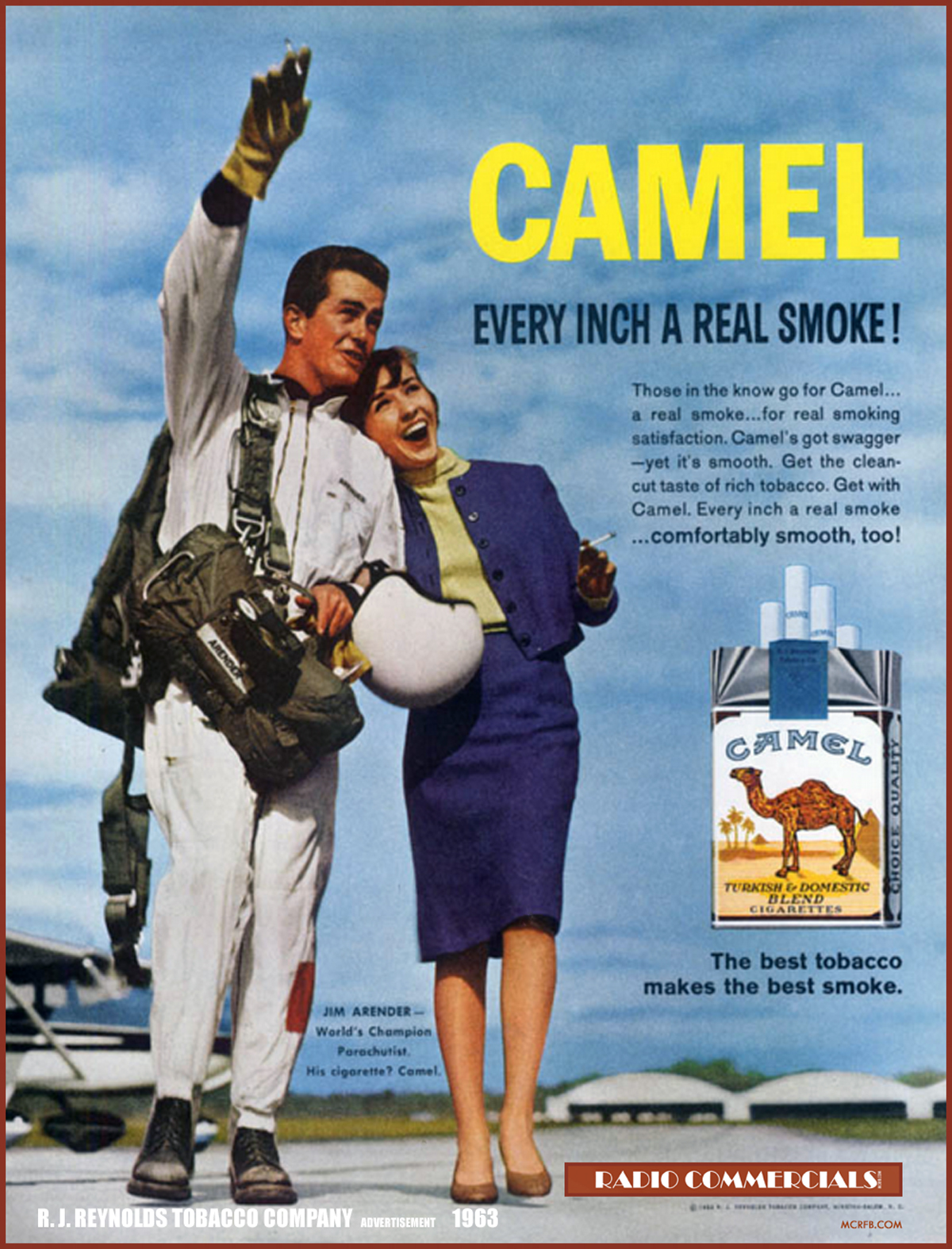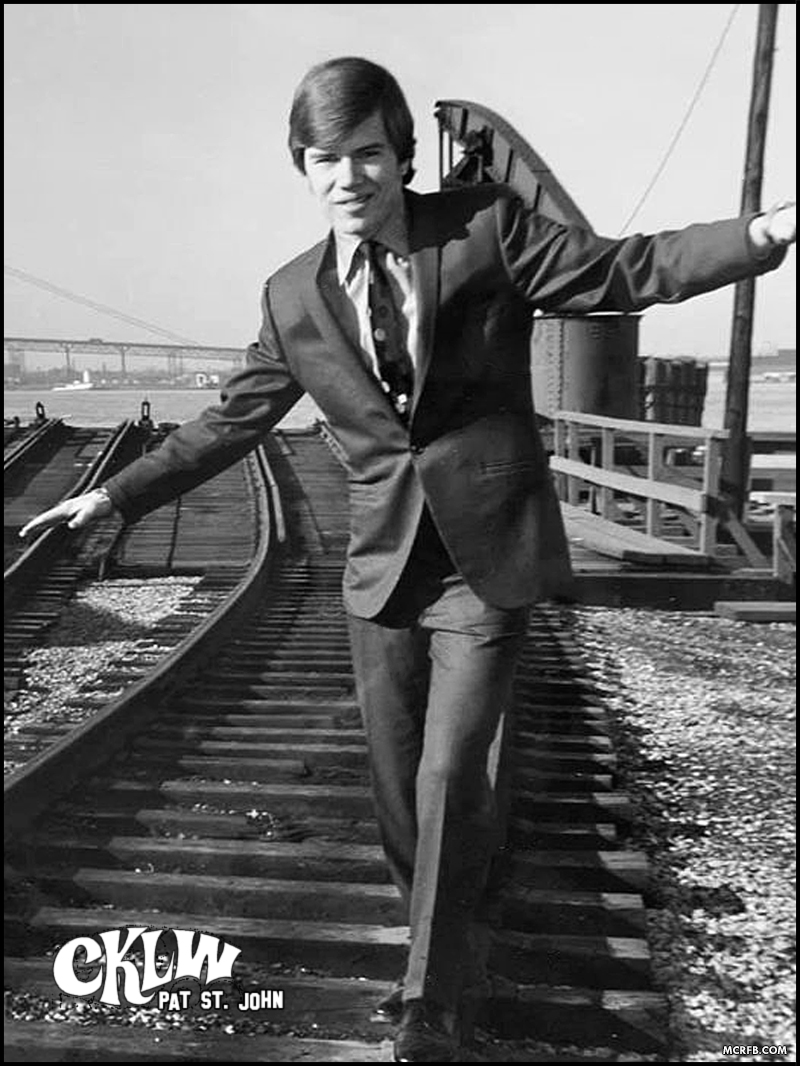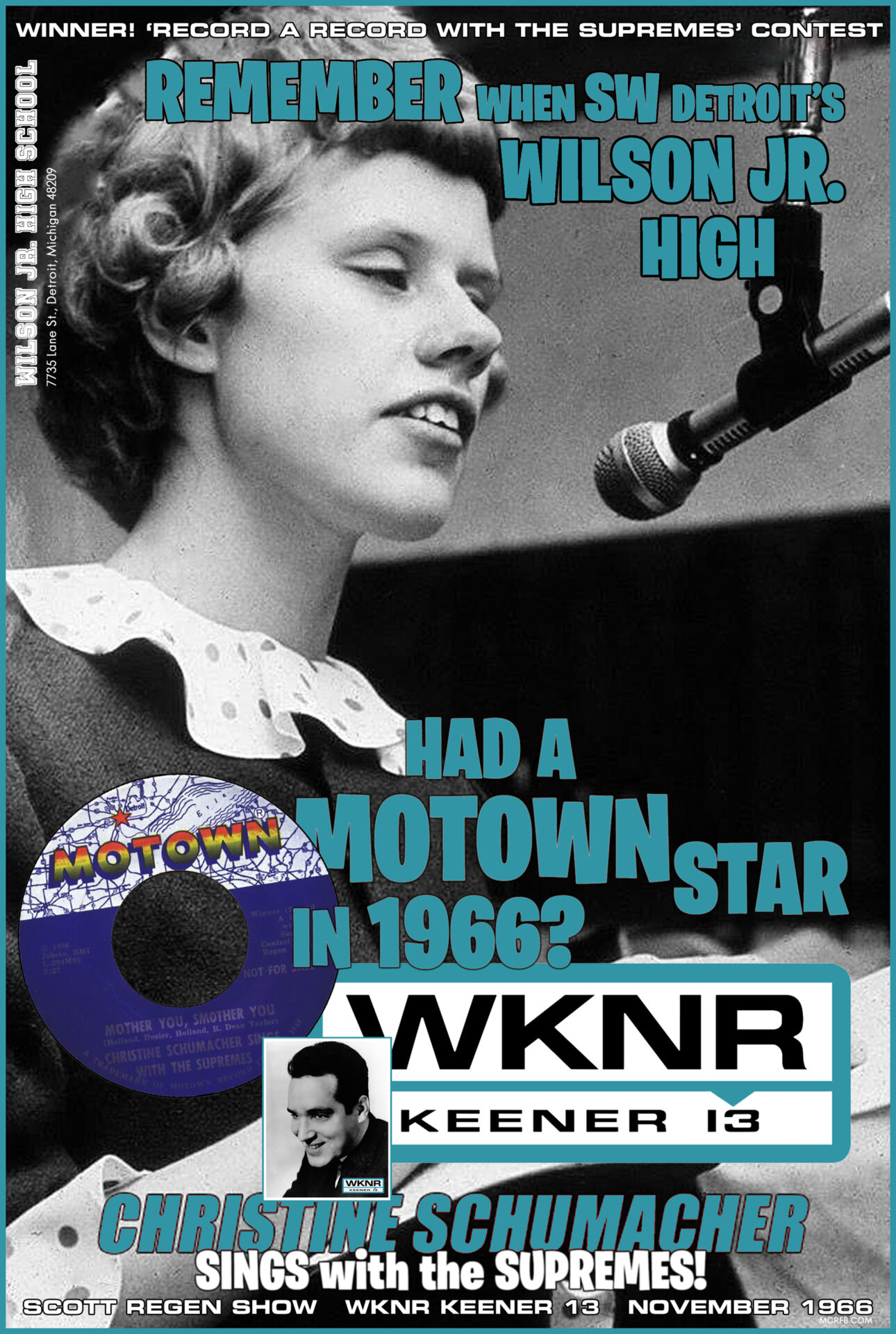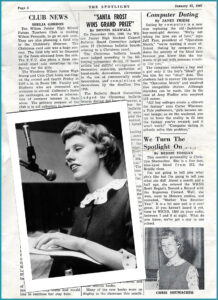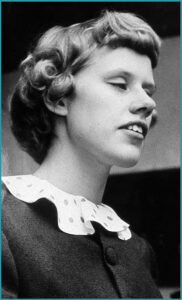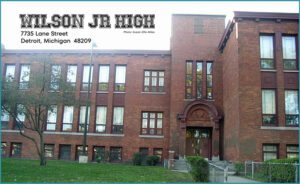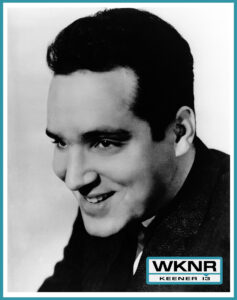DETROIT FREE PRESS Tuesday, September 28, 1999 — The Corner rocked.
 Music blared everywhere. So many flashbulbs were popping at times Monday that it seemed as if the Beatles were taking the stage. Strangers talked baseball to strangers.
Music blared everywhere. So many flashbulbs were popping at times Monday that it seemed as if the Beatles were taking the stage. Strangers talked baseball to strangers.
On the final day at Tiger Stadium, fans staged a festive wake for the old ballpark that featured heavy nostalgia, 65 old-time players and a rooftop grand slam.
The daylong celebration concluded with an emotional ceremony in which groundskeeper Charlie McGee dug up home plate with a pickaxe and took the precious cargo in a motorcade across downtown to the new Comerica Park.
Moments later, a cast of former Tigers took their old positions to loud applause and participated in a ceremonial lowering of the stadium flag.
The evening ended with many of the 43,356 fans standing at their seats, piano music playing over the public address system and the lights slowly going dark for the final time. As some fans daubed tears from their eyes and other beamed wide smiles, beloved announcer Ernie Harwell bid farewell to one of the most historic piece of baseball real estate in America.
“Tonight, we must say goodbye,” Harwell said, “So long old friend. We will remember.”
Cheers for players, stadium
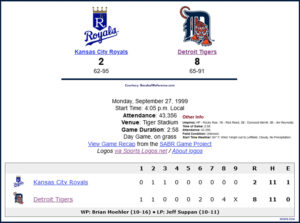 The game highlight was Robert Fick’s based-loaded home run that slammed into the roof in right-field and bounced back into the field. The blast iced the game for the Tigers, and Fick, hardly a household name in the game, was signing autographs well into the night.
The game highlight was Robert Fick’s based-loaded home run that slammed into the roof in right-field and bounced back into the field. The blast iced the game for the Tigers, and Fick, hardly a household name in the game, was signing autographs well into the night.
After the game, fans grew hoarse cheering for the former Tigers who entered the field from centerfield for the closing ceremony as music from “Braveheart” played. First to appear was Mark “The Bird” Fidrych, the sensation of the mid-1970s who ran to the pitcher’s mound and scooped dirt into a plastic bag.
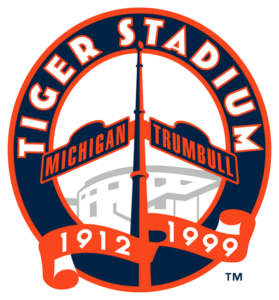 Players who received some of the loudest cheers were hometown favorites Willie Horton, Kirk Gibson and Ron LeFlore. Fans also screamed for Alan Trammel and Lou Whittaker, Gates Brown and Al Kaline. Some fans seemed stunned to see some long-forgotten heroes as Jim Bunning, Eddie Yost and Charlie (Paw Paw) Maxwell.
Players who received some of the loudest cheers were hometown favorites Willie Horton, Kirk Gibson and Ron LeFlore. Fans also screamed for Alan Trammel and Lou Whittaker, Gates Brown and Al Kaline. Some fans seemed stunned to see some long-forgotten heroes as Jim Bunning, Eddie Yost and Charlie (Paw Paw) Maxwell.
“Awesome, just awesome,” gushed Richard Coriaty, 36, a former Detroiter who traveled from Fontana, Calif. for the game.
Coriaty swept his hand toward the field, where the players assembled, dressed in the plain white uniforms with the old English D on their chest. “You know, of all the . . . things that have happened in this city, the one thing we all have in common is those guys out there.”
And the old building that became our field of dreams.
[Note: See Detroit Free Press article below for more. Click over images with mouse, or tap on and stretch article (and all photos and box scores) across your mobile device screen for larger detailed view].
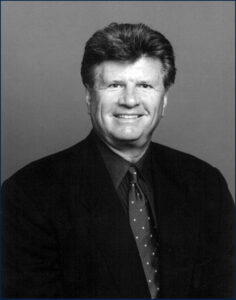 Jim Price, a former catcher for the Detroit Tigers and a key member of their 1968 championship team, passed away at the age of 81. The Tigers announced his death on Tuesday, August 8, 2023, but no cause was provided.
Jim Price, a former catcher for the Detroit Tigers and a key member of their 1968 championship team, passed away at the age of 81. The Tigers announced his death on Tuesday, August 8, 2023, but no cause was provided.
Price played with the Tigers from 1967 to 1971, primarily as a backup to All-Star catcher Bill Freehan. Over the course of 261 games, he recorded a batting average of .214, with 18 home runs and 71 RBIs, contributing to the team’s 1968 World Series victory.
In 1998, Price began his broadcasting career as a radio analyst for the Tigers, later expanding to their television coverage. Originally from Harrisburg, Pennsylvania, he excelled in three sports at Hershey High School before signing with the Pittsburgh Pirates in 1960, opting out of college football scholarship offers.
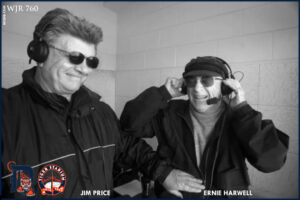 Alongside his wife, Lisa, Price co-founded a nonprofit organization called Jack’s Place, named after their son, who has autism, aimed at providing support for individuals and families affected by the disorder.
Alongside his wife, Lisa, Price co-founded a nonprofit organization called Jack’s Place, named after their son, who has autism, aimed at providing support for individuals and families affected by the disorder.
Jim Price partnered with Ernie Harwell in the Tigers broadcasting booth from 1999 to 2002.
![]()
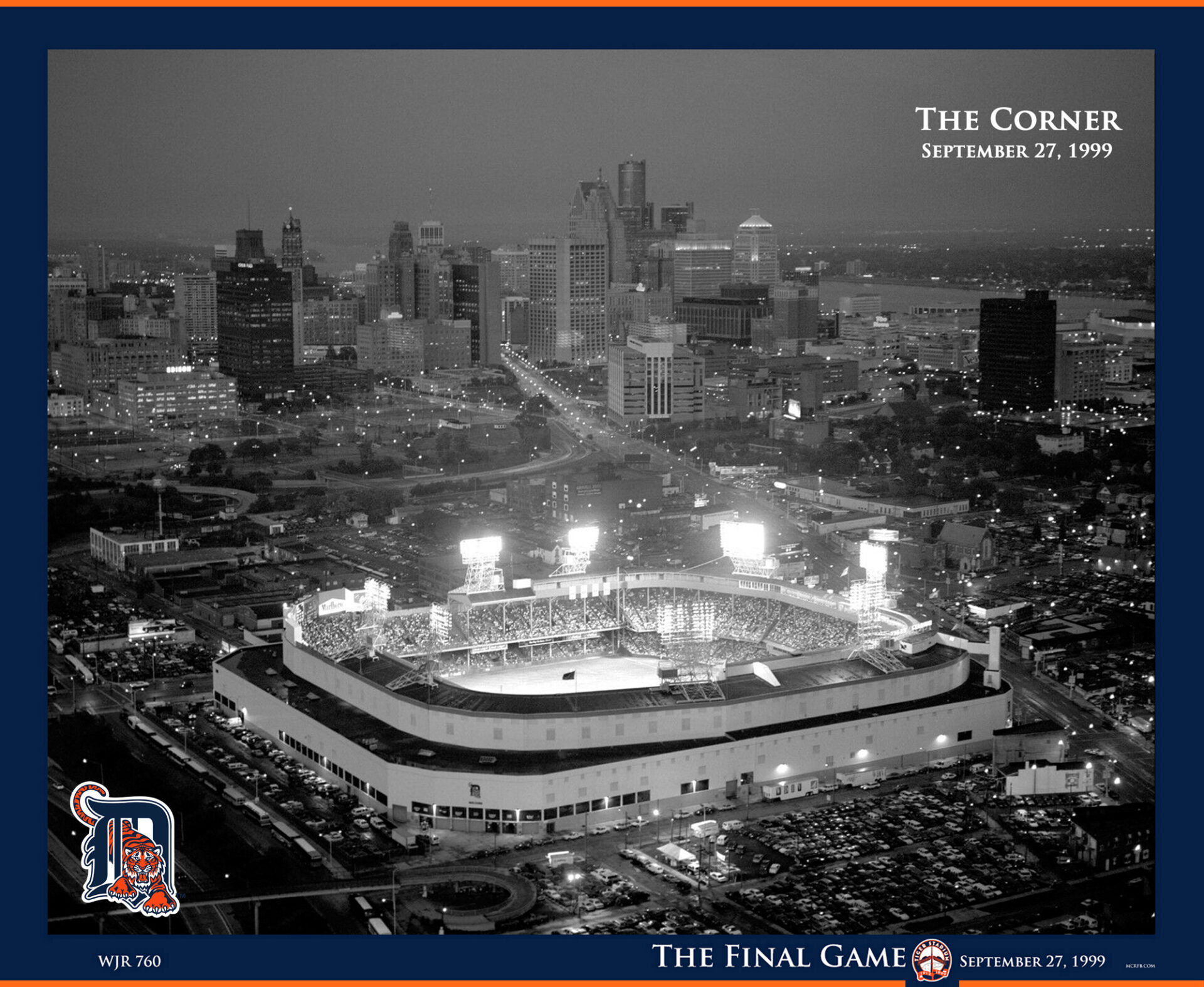
![]()
![]() Audio digitally remastered by Motor City Radio Flashbacks
Audio digitally remastered by Motor City Radio Flashbacks
![]()

![]()
![]()
![]()
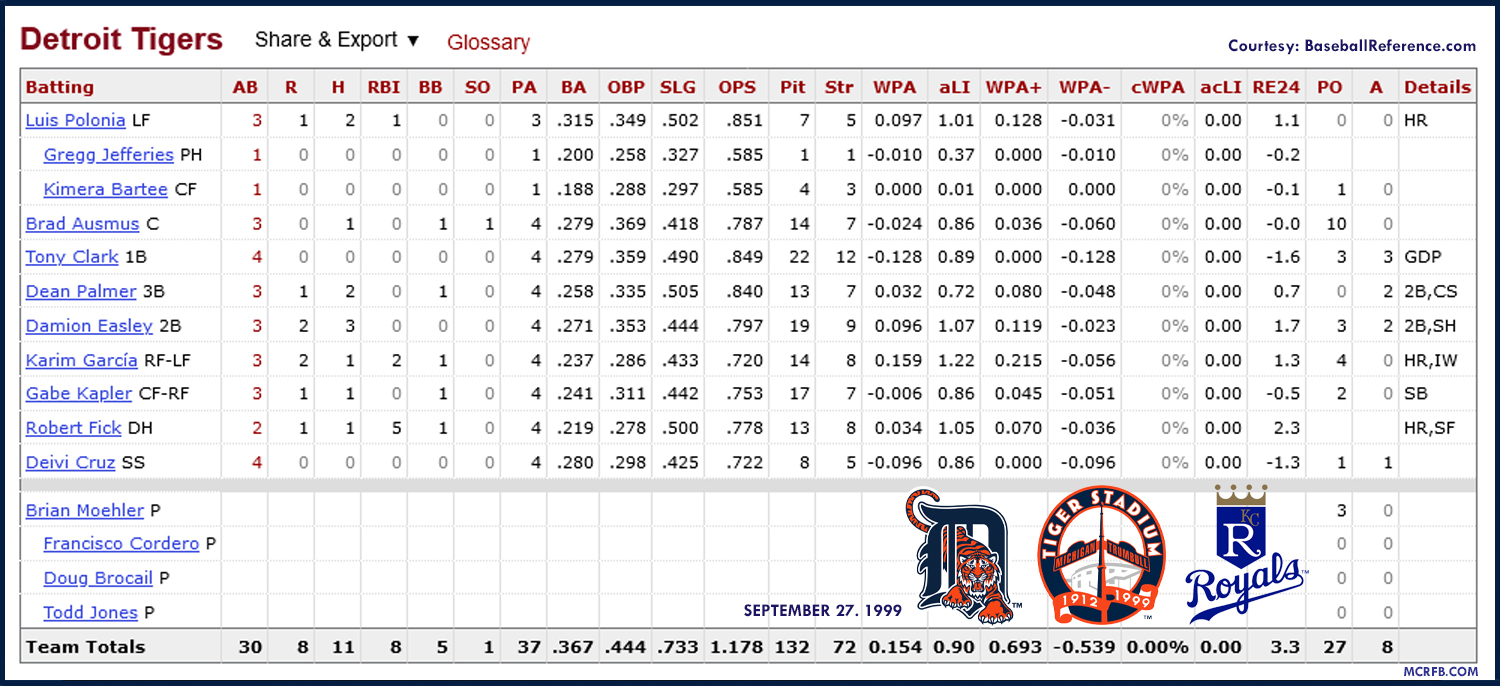
![]()
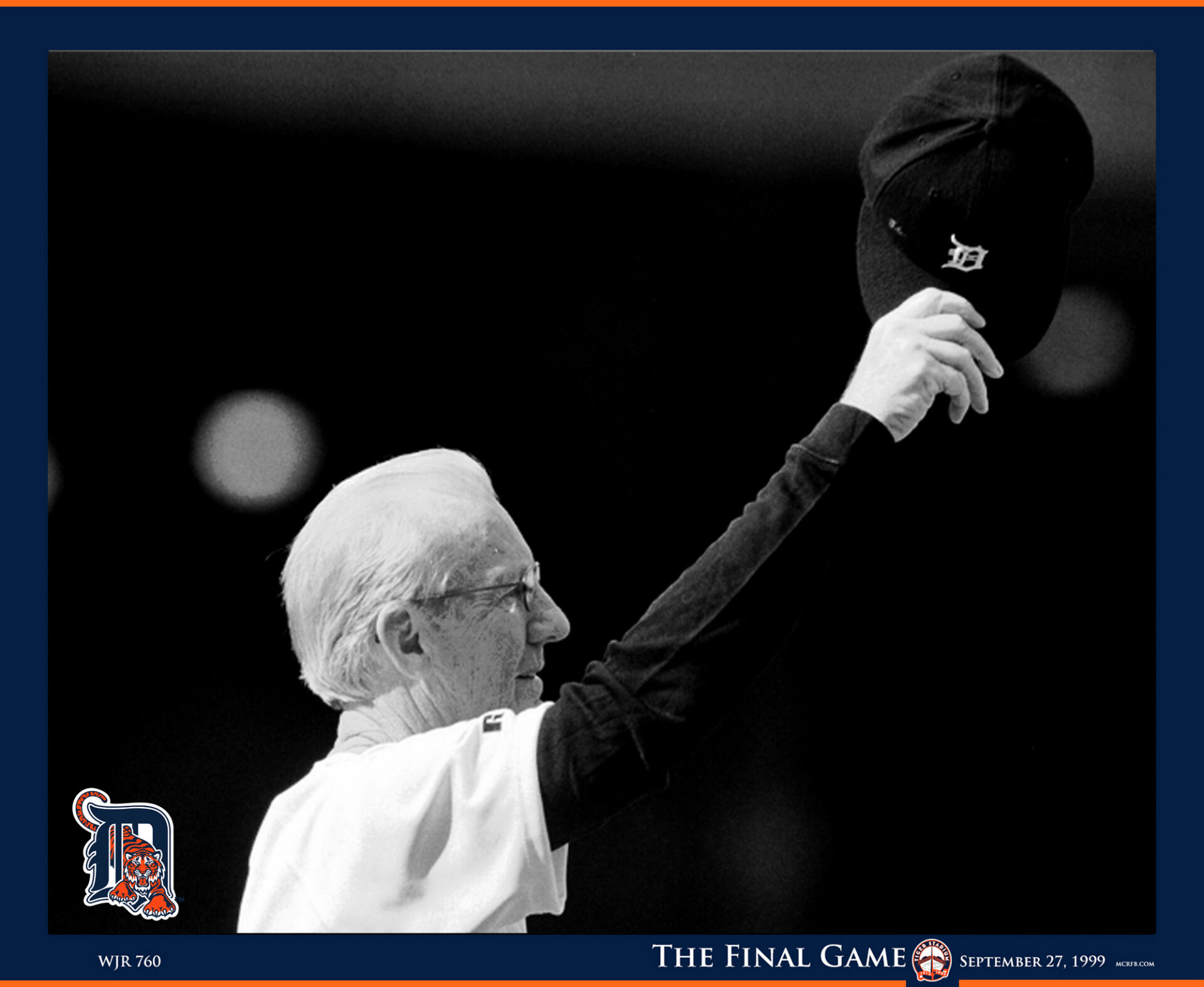
![]()
![]() Audio digitally remastered by Motor City Radio Flashbacks
Audio digitally remastered by Motor City Radio Flashbacks
![]()

![]()
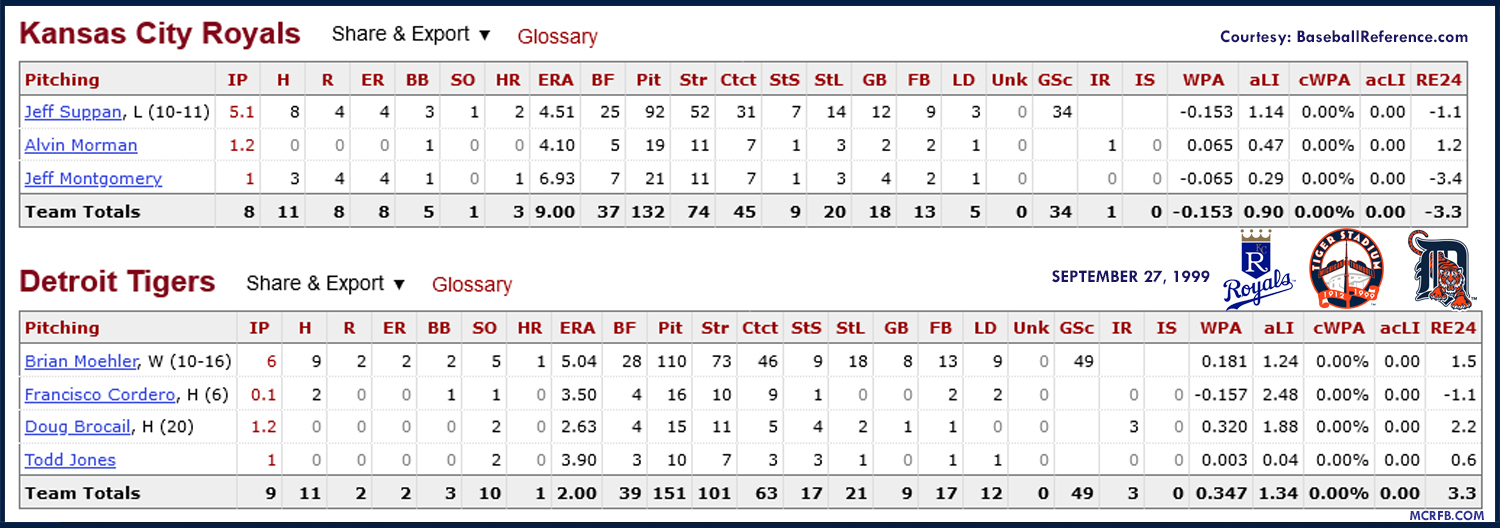
![]()
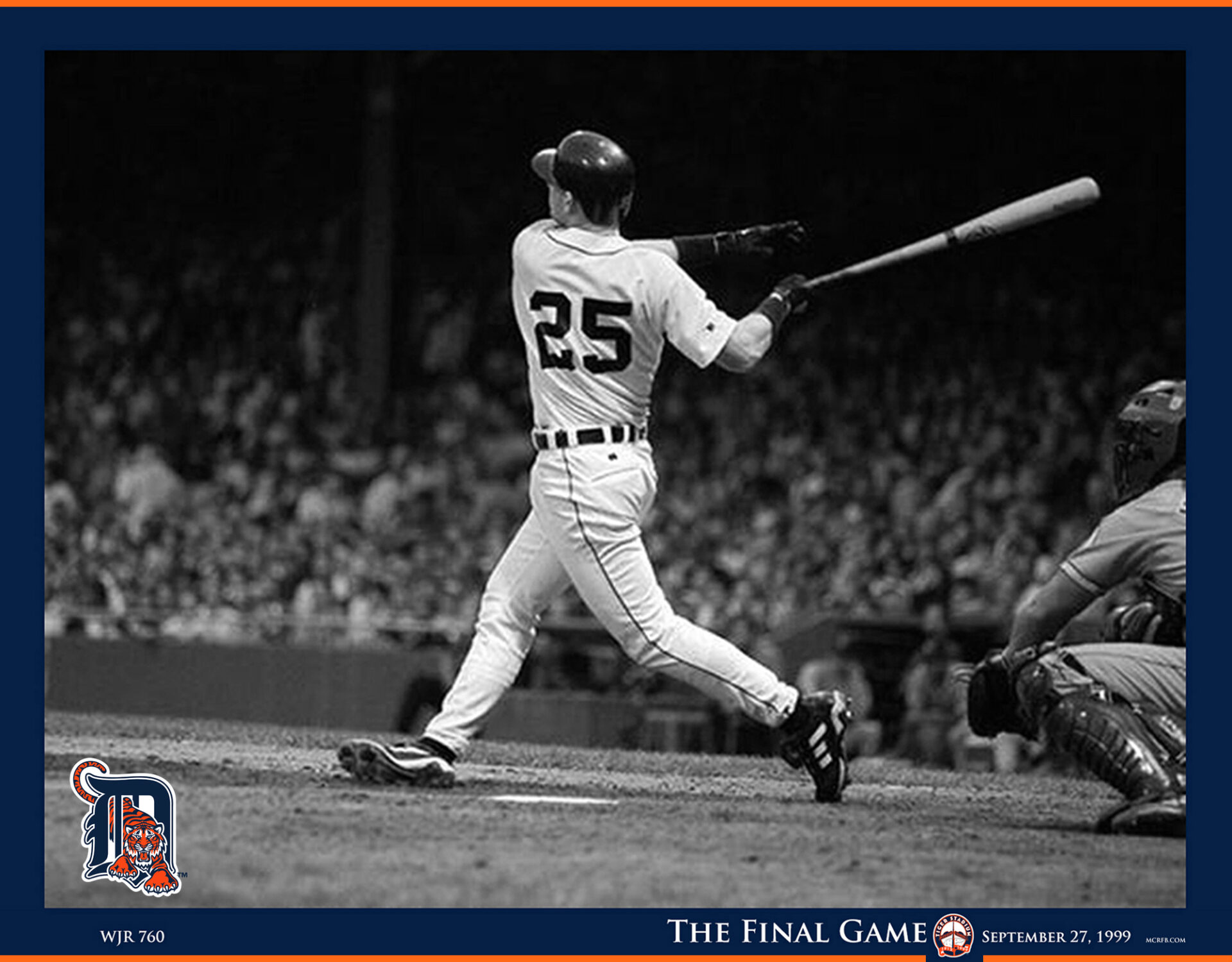
![]()
![]() Audio digitally remastered by Motor City Radio Flashbacks
Audio digitally remastered by Motor City Radio Flashbacks
![]()
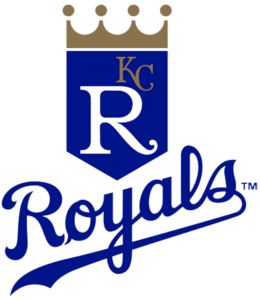 Before the final game at Tiger Stadium, a ceremony took place, hosted by Ernie Harwell, the current Tiger broadcaster and recipient of the Ford C. Frick Award. Owner Mike Ilitch addressed the crowd, joined by Michigan Governor John Engler, Detroit Mayor Dennis Archer, and Commissioner of Baseball Bud Selig. The event also featured Hall of Famer and longtime Tigers right fielder Al Kaline.
Before the final game at Tiger Stadium, a ceremony took place, hosted by Ernie Harwell, the current Tiger broadcaster and recipient of the Ford C. Frick Award. Owner Mike Ilitch addressed the crowd, joined by Michigan Governor John Engler, Detroit Mayor Dennis Archer, and Commissioner of Baseball Bud Selig. The event also featured Hall of Famer and longtime Tigers right fielder Al Kaline.
Instead of the usual lineup exchange between managers, both teams designated honorary captains. Al Kaline represented the Tigers, while former MVP and Hall of Fame third baseman George Brett stood for the Royals.
![]()
 The game concluded at 7:07 PM, after which the grounds crew gathered around home plate. At 7:13 PM, groundskeeper Charlie McGee used a pickaxe to remove home plate, which was then escorted by police and carried to Comerica Park by Tiger pitchers Matt Anderson, Jeff Weaver, and Francisco Cordero.
The game concluded at 7:07 PM, after which the grounds crew gathered around home plate. At 7:13 PM, groundskeeper Charlie McGee used a pickaxe to remove home plate, which was then escorted by police and carried to Comerica Park by Tiger pitchers Matt Anderson, Jeff Weaver, and Francisco Cordero.
Ernie Harwell took the stage to recount the history of Tiger Stadium, accompanied by music from *Field of Dreams*. He presented a film featuring legendary Tigers like Ty Cobb, Sam Crawford, Hughie Jennings, and Harry Heilmann, and recognized the Hall of Famers: Heinie Manush, Mickey Cochrane, Charlie Gehringer, Hank Greenberg, Hal Newhouser, and George Kell.
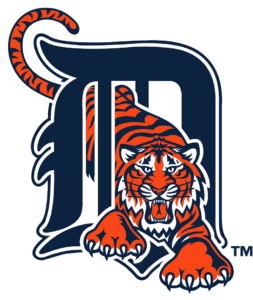 Following speeches from Willie Horton and former manager Sparky Anderson, a group of former players emerged from the center field gate. This included Mark Fidrych, Bill Freehan, Dick McAuliffe, Dave Bergman, Mickey Stanley, Kirk Gibson, Cecil Fielder, Al Kaline, and the duo of Alan Trammell and Lou Whitaker, along with Elden Auker. They formed a line from the center field flagpole to home plate, passing the flag that had flown over the stadium during its finale.
Following speeches from Willie Horton and former manager Sparky Anderson, a group of former players emerged from the center field gate. This included Mark Fidrych, Bill Freehan, Dick McAuliffe, Dave Bergman, Mickey Stanley, Kirk Gibson, Cecil Fielder, Al Kaline, and the duo of Alan Trammell and Lou Whitaker, along with Elden Auker. They formed a line from the center field flagpole to home plate, passing the flag that had flown over the stadium during its finale.
After Auker handed the flag to catcher Brad Ausmus, players tossed souvenirs into the stands, while some fans collected dirt from the warning track in plastic bags. At that moment, Harwell delivered his final farewell: “Tonight, we say good-bye… Farewell, old friend Tiger Stadium. We will remember.”
At 8:19 PM, the scoreboard was turned off. A final team photo was taken at 8:45 PM, and by 9 PM, the stands were empty. As the last fans departed, a sign was hung from the iconic right-center field overhang that read: “Today, there is crying in baseball. So long, old friend.”

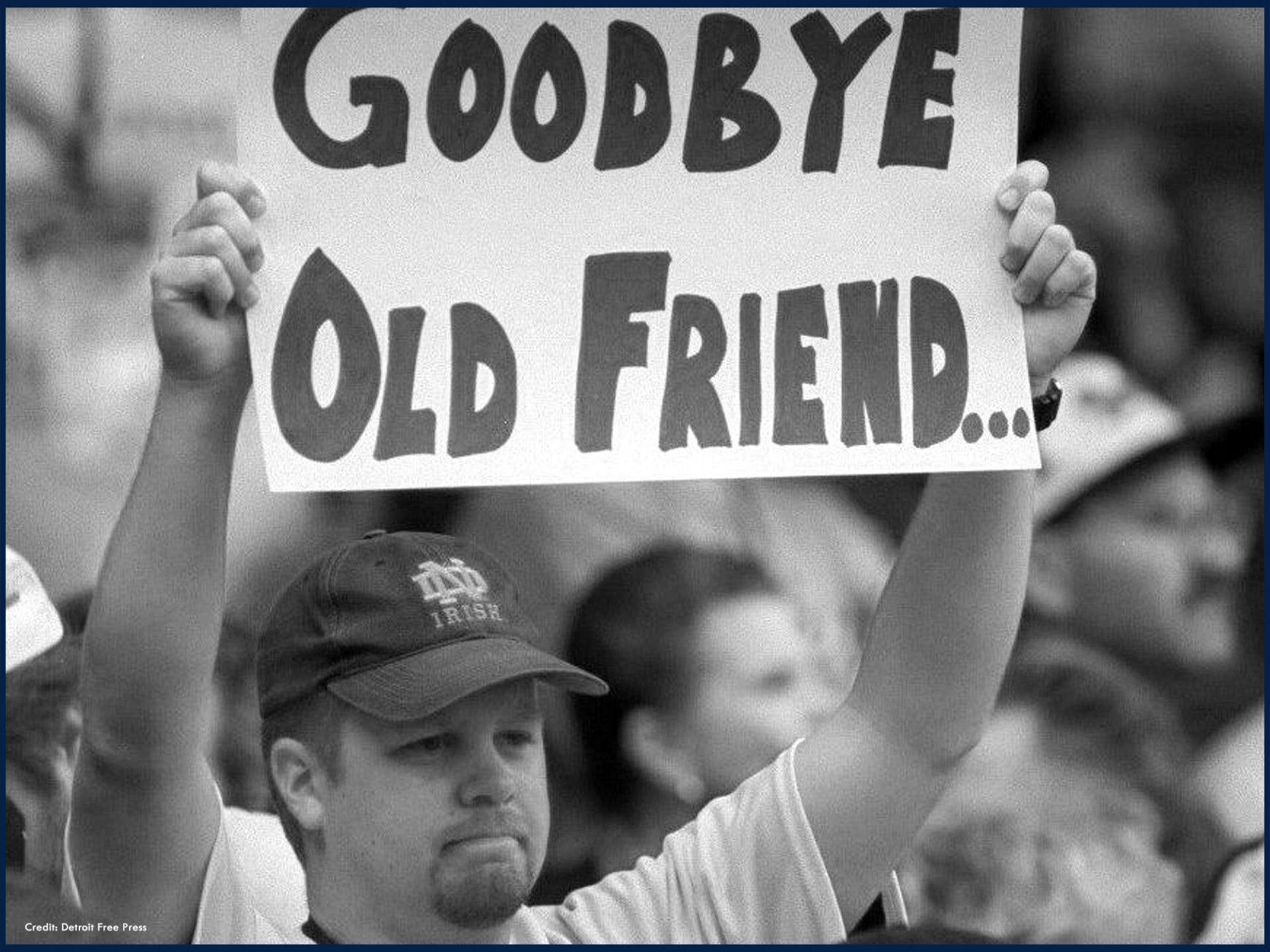
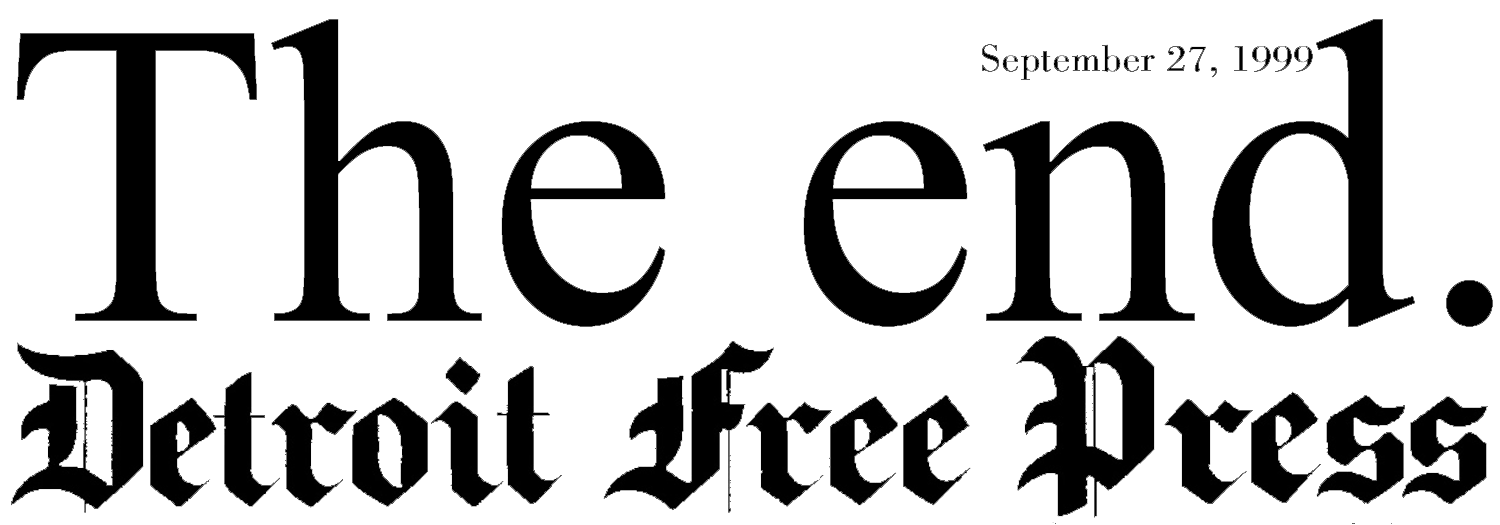
![]()
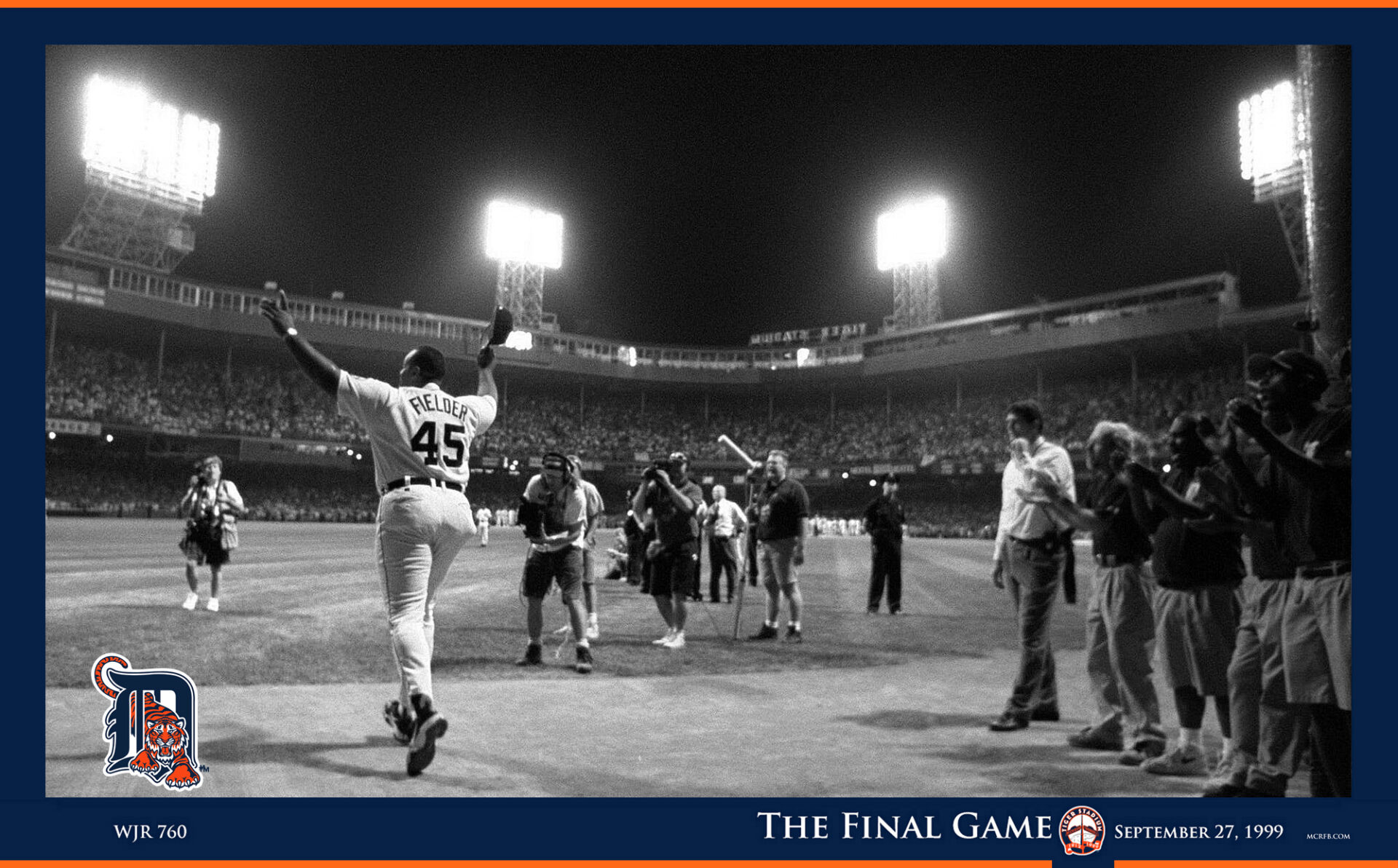
![]()
![]() Audio digitally remastered by Motor City Radio Flashbacks
Audio digitally remastered by Motor City Radio Flashbacks
![]()
